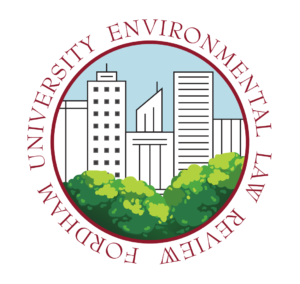Carbon Markets, In Tension With Environmental Justice
by Sarah Walsh, Fordham Environmental Law Review, Environmental Justice Columnist
Governments around the world are establishing carbon markets. These are markets where emissions (or emissions reductions) can be exchanged from one entity to another. In other words, “if one country pays for carbon emissions to be reduced in a second country, the first country can count those reductions towards its own national targets.” Rather than reduce their own emissions, companies/countries with high carbon emissions rates that comply with the carbon emission cap can purchase the right to emit more from companies/countries that are emitting less than their carbon caps.
In theory this is efficient and effective, in practice, it disproportionately affects low-income and minority communities. As seen in an analysis produced by Food & Water Watch, pollution trading schemes tend to compound the toxic burdens on disadvantaged communities that are already over-burdened by the disproportionate number of polluting facilities in their neighborhoods. This burden is compounded when the communities lack the political influence to fight these inherently unfair market-based programs. Environmental justice groups are arguing that carbon offsets and carbon trading “are inadequate to confront the climate crisis; marginalize frontline communities fighting environmental justice battles; and are designed to benefit corporate interests – not communities or the climate.”
These programs “allow the oil companies to invest in far-flung carbon mitigation projects rather than cutting emissions at home, leaving the communities to continue suffering the consequences.”. For example, in California, 808 regulated companies are currently meeting their state-mandated emissions reductions by purchasing up to 8% of their total carbon credits from environmental improvement projects, which can be located anywhere in the US. Put another way, “Chevron could be purchasing off-set credits from a remediation project in Wildcat Canyon, just three miles away from the poorest neighborhoods of Richmond (CA).”
Environmental justice advocates are encouraging the development of more offsets within these disadvantaged communities, rather than looking to purchase offsets elsewhere. Others are calling for policies that focus on moving the state away from burning fossil fuels for energy because such fuels are the overwhelming contributor to climate change and have devastating impacts on poor, low-income and communities of color in California and around the world. As emphasized by Food and Water Watch, in order to prioritize environmental justice while fighting climate change, “the way out must be an immediate end to the use of fossil fuels and a rapid shift to zero-emission, genuine renewable power, accompanied by widespread deployment of energy efficiency measures and battery storage.”

